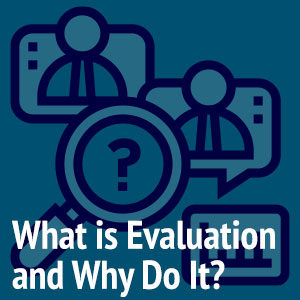
Program evaluation is seldom simply about making a narrow judgment about the outcomes of a program (i.e., whether the desired changes were, in fact, ultimately produced.) Evaluation is also about helping to provide program implementers and stakeholders with information that will help them strengthen their organization’s efforts, so that desired programmatic goals are more likely to be achieved.
Brad Rose Consulting is strongly committed to translating evaluation data into meaningful and actionable knowledge, so that programs, and the organizations that host programs, can strengthen their efforts and optimize results. Because we are committed not just to measuring program outcomes, but to strengthening the organizations that host and manage programs, we work at the intersection of program evaluation and organization development (OD).
- engage in the clarification of their goals and purposes
- enhance understanding of the often implied relationships between a program’s causes and effects
- articulate for internal stakeholders a collective understanding of the objectives of their programming
- reflect on alternative concrete strategies to achieve desired outcomes
- strengthen internal and external communications
- improve relationships between individuals within in programs and organizations
Although Brad Rose Consulting evaluation projects begin with a focus on discrete programs and initiatives, the answers to the questions that drive our evaluation of programs often provide vital insights into ways to strengthen the effectiveness of the organizations that host, design, and implement those programs. (See
“Logic Modeling: Contributing to Strategic Planning” )
Typically, Brad Rose Consulting works with clients to gather data that will help to improve, strengthen, and “nourish” both programs and organizations. For example, our formative evaluations, which are conducted during a project’s implementation, aim to improve a program’s design and performance. (See
“Understanding Different Types of Program Evaluation” ) Our evaluation activities provide program managers and implementers with regular, data-based briefings, and with periodic written reports so that programs can make timely adjustments to their operations. Formative feedback, including data-based recommendations for program refinement, can also help to strengthen the broader organization, by identifying opportunities for organizational learning, clarifying the goals of the organization as these are embodied in specific programming, specifying how programs and organizations work to produce results (i.e., articulating cause and effect) and by strengthening systems and processes.
Resources
“What’s the Difference? 10 Things You Should Know About Organizations vs. Programs,”
“Logic Modeling: Contributing to Strategic Planning”
“Understanding Different Types of Program Evaluation”



